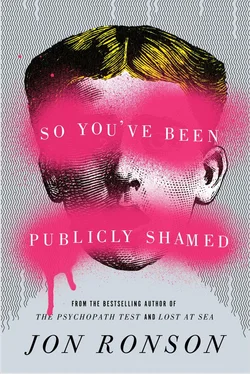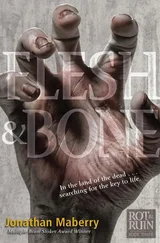But the shifting sands of shameworthiness had shifted away from sex scandals — if you’re a man — to work improprieties and perceived white privilege, and I suddenly understood the real reason why Max had survived his shaming. Nobody cared . Max survived his shaming because he was a man in a consensual sex shaming — which meant there had been no shaming.
I e-mailed Max to tell him. “Nobody cared!” I wrote. “Of all the public scandals, being a man in a consensual sex scandal is probably the one to hope for.” Max was a target of no one — not liberals like me, not the online misogynists who tear apart women who step out of line. Max suffered nothing.
An hour passed. Then Max e-mailed back: “Hi Ron. I think you are spot on.”
• • •
It wasn’t that nobody cared. Max’s wife cared. And someone else did: Paul Dacre, the editor of the Daily Mail . In a 2008 speech to the Society of Editors, Paul Dacre called Max’s orgy “perverted, depraved, the very abrogation of civilized behavior.” It was a rueful speech lamenting the death of shame. Dacre portrayed Justice David Eady — the judge who found in Max’s favor in the privacy case against the News of the World —as its incarnation.
The judge found for Max Mosley because he had not engaged in a “sick Nazi orgy” as the News of the World contested, though for the life of me that seems an almost surreally pedantic logic as some of the participants were dressed in military-style uniform. Mosley was issuing commands in German while one prostitute pretended to pick lice from his hair, a second fellated him and a third caned his backside until blood was drawn… [To Justice Eady] such behavior was merely “unconventional.”…
But what is most worrying about Justice Eady’s decisions is that he is ruling that — when it comes to morality — the law in Britain is now effectively neutral, which is why I accuse him, in his judgments, of being “amoral.”
Ever since I started telling people I was writing a book about shame, lots of people from the Paul Dacre — type world — successful older men high up in British society — have congratulated me, presumptuously, for telling it how it is about how young people don’t feel shame anymore. I met a famous architect at a party who said just that. And a religious broadcaster bemoaned to me how the loosening of religious morality has created a shameless society. I can understand why someone might believe that, given that we’re living in an age where a Church of the Nazarene pastor can visit a prostitute and nobody cares. I think Andrew and Max have women like Princess Donna to thank for their non-disgrace. Donna has worked assiduously for years to demystify strange sex, which is why men like them are able to emerge from their scandals unscathed. But shame hasn’t died. Shame has just moved elsewhere, gathering tremendous strength along the way.
The fact was, speeches like Paul Dacre’s didn’t matter anymore. The people who mattered didn’t care what Dacre thought. The people who mattered were the people on Twitter. On Twitter we make our own decisions about who deserves obliteration. We form our own consensus, and we aren’t being influenced by the criminal justice system or the media. This makes us formidable.
My journey to find a shame-free paradise — somewhere we can be safe from the likes of us — had been a failure. Radical Honesty felt to me like people just yelling at each other. Neither Max nor Andrew had helpful secrets to impart about mustering the strength to survive the agony of a shaming. For them, there had been no shaming to survive. In fact, the only place on my journey where I’d witnessed any form of post-shame enlightenment was the Public Disgrace shoot at the sports bar in the San Fernando Valley. I looked back on the night with fondness. It was the only place I’d been to since I started writing this book that had felt relaxing .
Then I reread my transcript of a conversation I’d had with Donna that night and saw something I hadn’t noticed before.
DONNA:I was just coming home from Sacramento. I was at the airport. And I read something about myself on TMZ.
TMZ is a celebrity-gossip website. When Donna read their story, she told me, she suddenly saw how she looked to the outside world. It made her feel deeply humiliated and upset.
DONNA:I’d been in this bubble in San Francisco, surrounded by other sex-positive people who are knowledgeable about sex work, about the sex industry, and so I never felt judged. But then all of a sudden I had these people looking at me from the outside and talking about me as if I was some idiotic pornographer. It was really hard. I was crying at the airport. I was crying on the plane ride.
Now I hunted down the TMZ article. What had been so crushing? How brutal had they been about Donna?
James Franco is working on a top secret project with an up-and-coming female porn director, TMZ has learned… and it turns out she has quite the reputation for being handy with her fist. The woman in the photo is Princess Donna Dolore, who’s featured in Franco’s soon-to-be released film “Kink.” Despite being in the film, Franco only met PDD for the first time in person last week… and sources tell us he has already locked her up to be a part of a future project he is working on. During the encounter, PDD gave Franco an official Princess Donna Dolore shirt, which includes her trademark fist on the back. James took it… the shirt, that is… and sported it proudly. We reached out to Franco for comment — but so far, no word back.
— TMZ STAFF, DECEMBER 26, 2012
Years ago I might have thought it crazy that Donna had become so upset over such an innocuous article. But now I understood. I think we all care deeply about things that seem totally inconsequential to other people. We all carry around with us the flotsam and jetsam of perceived humiliations that actually mean nothing. We are a mass of vulnerabilities, and who knows what will trigger them? And so I sympathized with Donna. It seemed sad — given how Max and Andrew owed her so much — that as soon as she saw herself from the outside she felt ashamed, like the shame had snaked its way into her and there was no escaping.
—
I’m sure there are psychopaths out there — people neurologically incapable of feeling shame, as if they were shrouded in layers of cotton wool — but I hadn’t met anybody like that on this journey. Ever since I began writing this book, though, one name kept coming up as someone who had survived a public shaming with such an apparent lack of effort that he made the entire concept of public shame seem like no big deal. And now after some reluctant e-mails—“I hope you’ll understand, I’m wary”—he had agreed to meet me for lunch. His name was Mike Daisey.
Ten.The Near Drowning of Mike Daisey
It feels like they want an apology, but it’s a lie.” Mike Daisey and I were sitting in a Brooklyn restaurant. He was a big man and he frequently dabbed the perspiration from his face with a handkerchief that was always within his reach. “It’s a lie because they don’t want an apology,” he said. “An apology is supposed to be a communion — a coming together. For someone to make an apology, someone has to be listening. They listen and you speak and there’s an exchange. That’s why we have a thing about accepting apologies. There’s a power exchange that happens. But they don’t want an apology.” He looked at me. “What they want is my destruction. What they want is for me to die. They will never say this because it’s too histrionic. But they never want to hear from me again for the rest of my life, and while they’re never hearing from me, they have the right to use me as a cultural reference point whenever it services their ends. That’s how it would work out best for them . They would like me to never speak again.” He paused. “I’d never had the opportunity to be the object of hate before. The hard part isn’t the hate. It’s the object.”
Читать дальше












